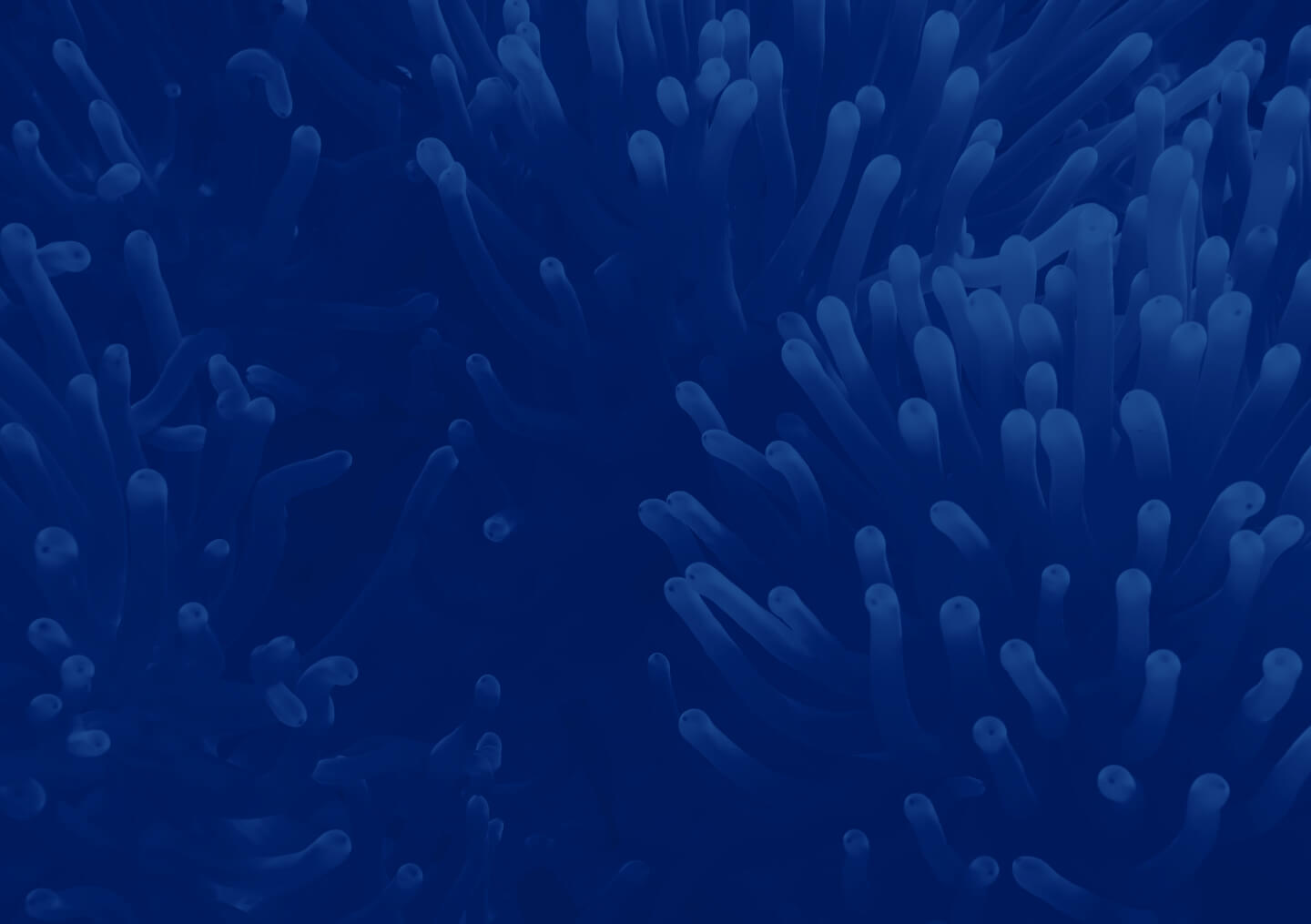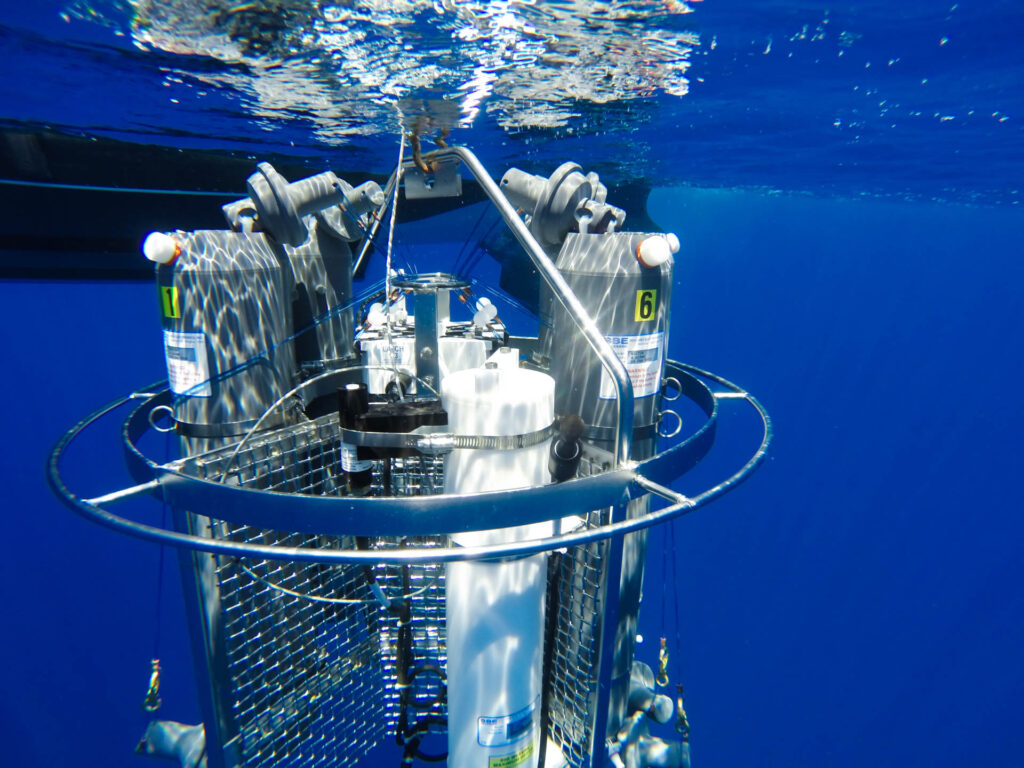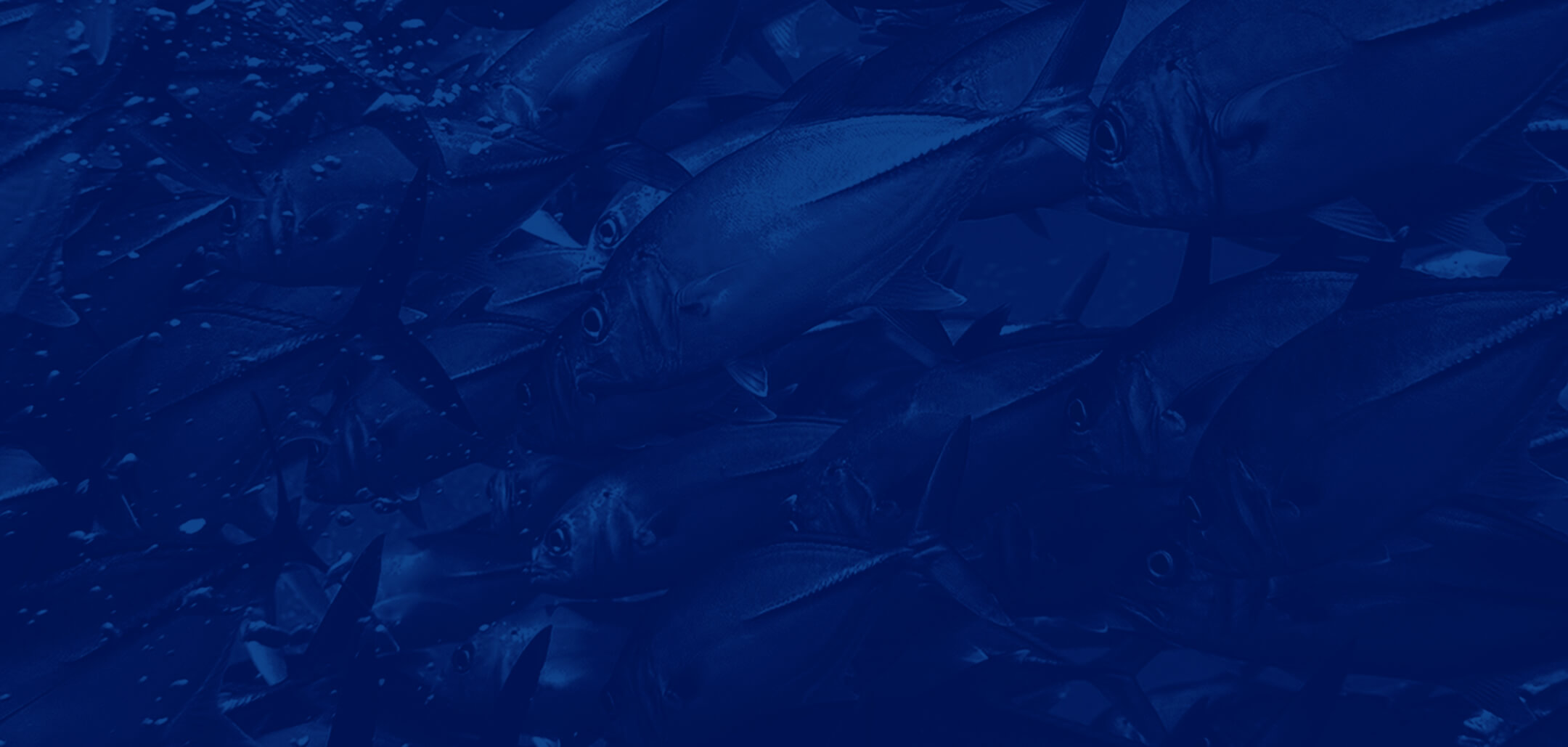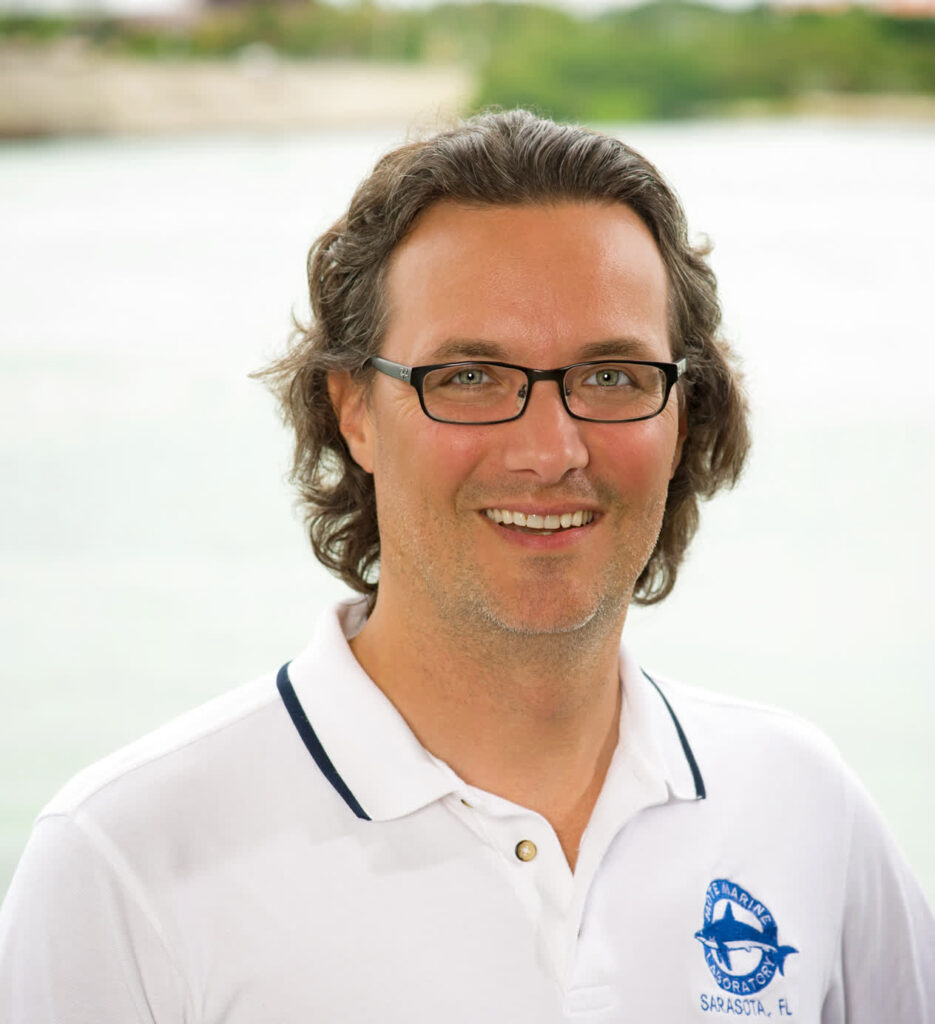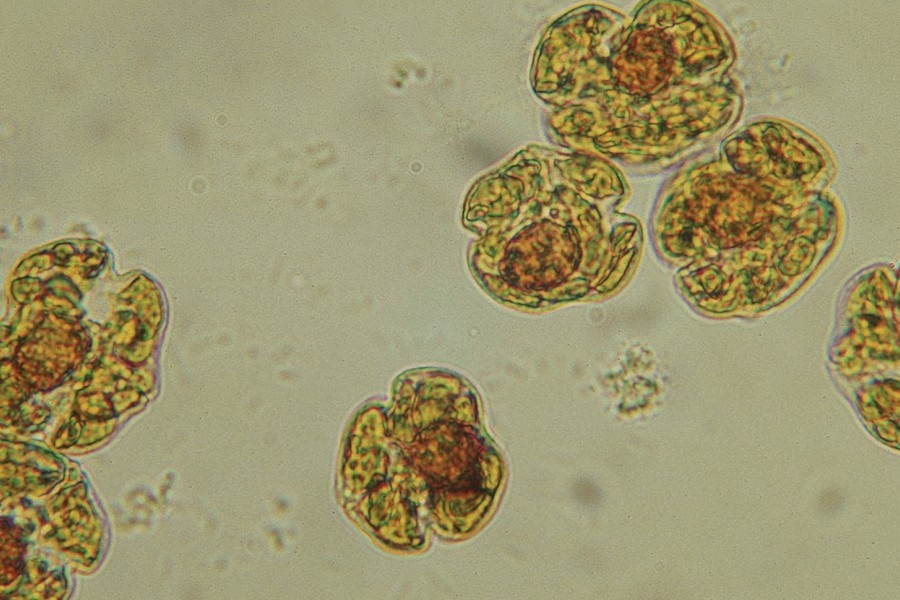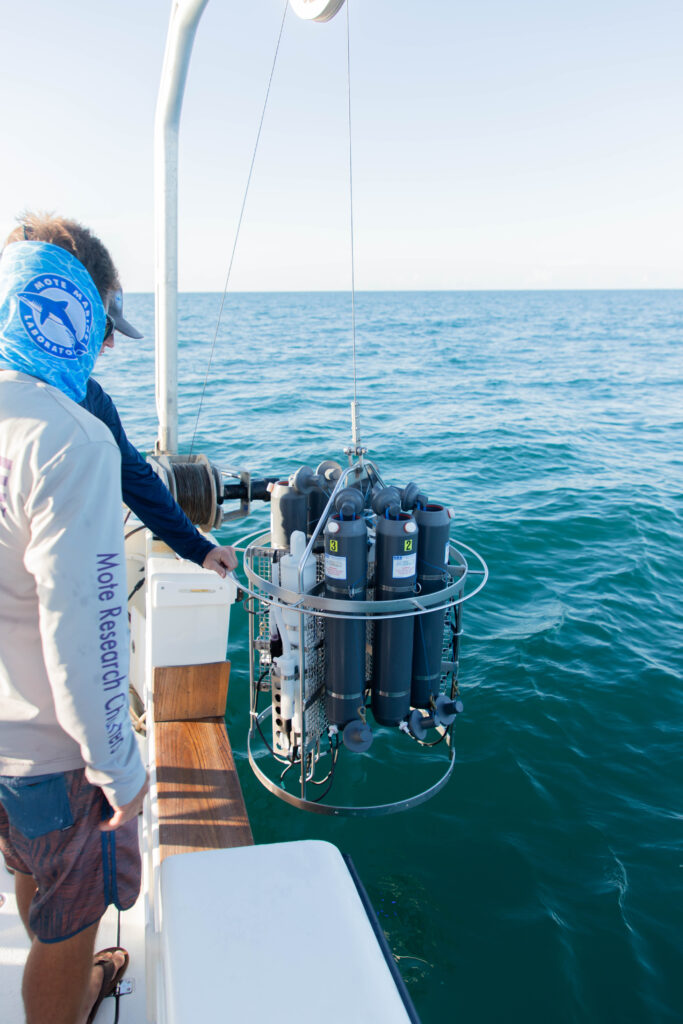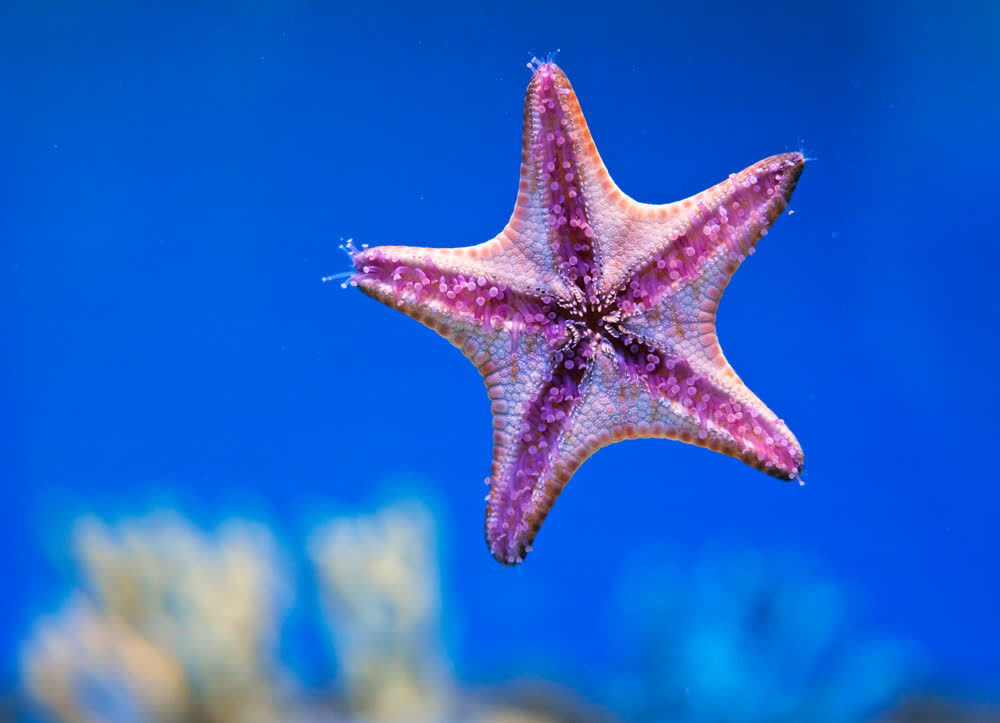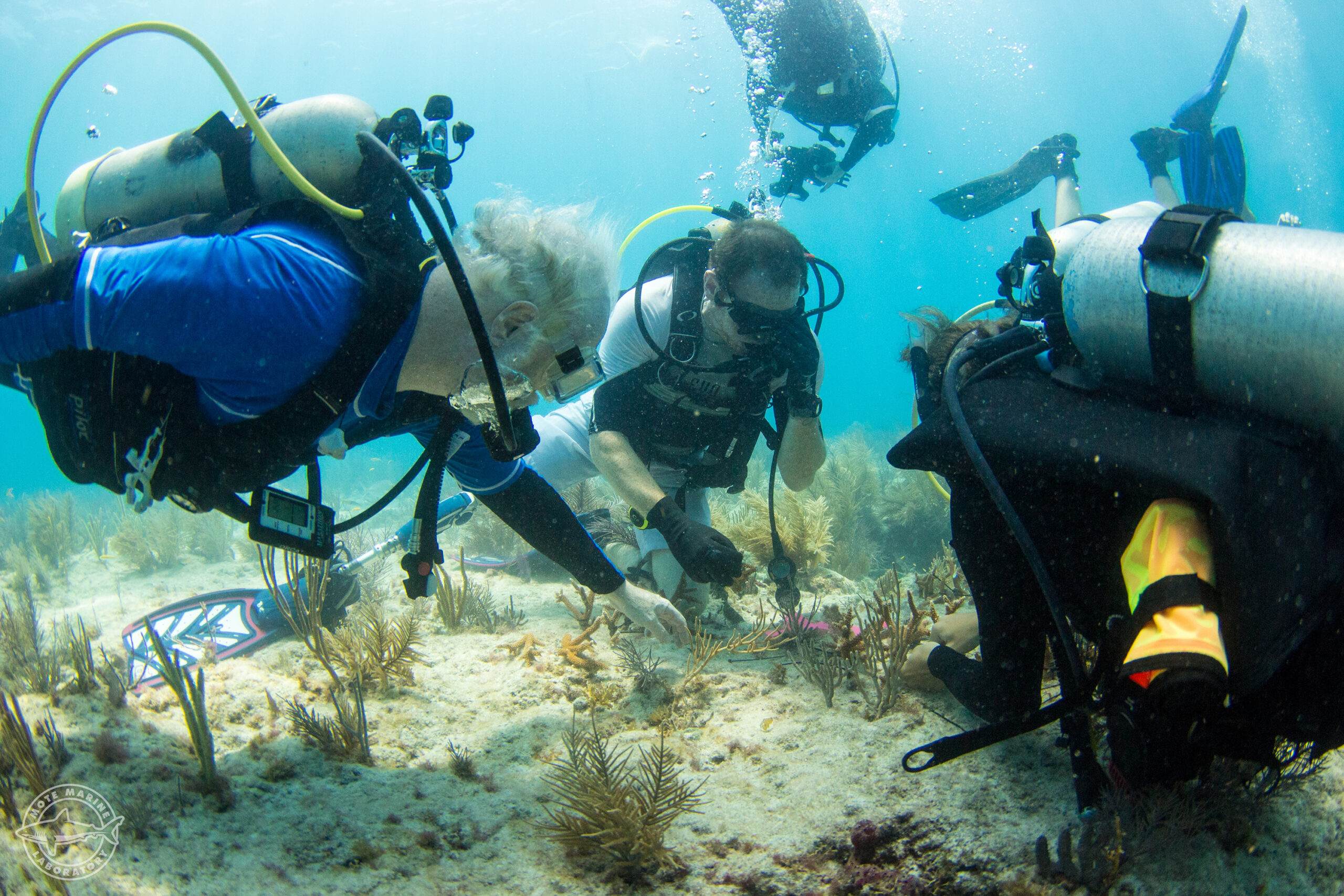The Phytoplankton Ecology program studies the ocean’s phytoplankton community, with an emphasis on the West Florida Shelf in the Gulf of Mexico. Our staff focuses on the biology and ecology of phytoplankton, both as individual species and as a diverse community of many species interacting with each other, their environment, and other organisms.
Many phytoplankton species can produce harmful toxins and a primary focus of our group is to understand the dynamics of the red tide organism Karenia brevis, a dinoflagellate that forms harmful algal blooms in the Gulf of Mexico. This algae produces potent neurotoxins that, when the algae blooms, can kill fish, birds and marine mammals and can cause illness in humans that inhale aerosols or consume contaminated shellfish. We aim to identify the processes and factors that influence phytoplankton community dynamics, and lead to bloom formation and persistence. We also study factors that lead to the demise of a harmful algal bloom, possibly allowing the development of harmful algal bloom control and mitigation mechanisms that, in the future, may allow us to minimize bloom duration, reducing the impact to humans and natural resources.
The Phytoplankton Ecology program also runs a phytoplankton culture facility where we grow cultures of Karenia brevis and other phytoplankton, both toxic and non-toxic. This allows us to perform specific studies to better understand the biology, behavior and toxicity of these organisms.
Learn more about red tide in the Gulf of Mexico and other harmful algal blooms on our Facebook page.
Current Projects
- FWC/FWRI-Mote Cooperative Red Tide Program: Reduction of Harmful Impacts From Florida Red Tide—A cooperative monitoring and research program with the Florida Fish and Wildlife Research Institute assisting with the State of Florida’s goals of red tide monitoring and mitigation of negative impacts.
- Collaborative Research: Modeling the Dynamics of Harmful Algal Blooms, Human Communities and Policy Choices Along the Florida Gulf Coast—A collaborative research program focused on understanding how the dynamic interactions between natural and human systems influence and inform society’s choice of policies for mitigating the economic and public health effects of K. brevis blooms along Florida’s Gulf of Mexico coast.
- HPLC Processing of Phytopigments—The Phytoplankton Ecology program analyzes phytoplankton samples and provides phytoplankton community information for projects at several other institutions, including projects in Miami and the Antarctic.
Proud Partners in the Red Tide Initiative
